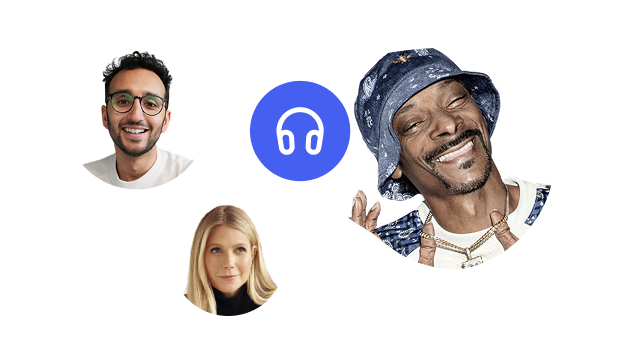Most common learning disabilities
Learning disabilities present themselves in many ways. Some indicate a reduced intellectual ability toward everyday activities, while others only make it harder to learn using conventional methods.
Not all learning disabilities are connected to mental health. Some can be related to auditory, spacing, and other difficulties. While it’s possible for any specific learning disability can negatively impact self-esteem and stall academic achievement, the good news is that people with learning disabilities can overcome them with proper resources, management techniques, and educational assistance.
The most common learning disabilities
Dyslexia
Some may call it a disability, and others a learning difficulty. Whichever camp you’re in, dyslexia is a common issue among kids, teens, and adults. Dyslexia affects people’s ability to process and remember information when reading.
If left unmanaged, dyslexia can negatively affect a person’s organizational skills, literacy skills, and language comprehension. The most common symptoms of dyslexia include poor phonological awareness, letter and word confusion, slower verbal processing speed, among others.
Dyslexia doesn’t affect a person’s intelligence. It only makes concentrating on reading and writing more difficult. In fact, the British Dyslexia Association notes that people with dyslexia can show above-average creative, oral, and problem-solving skills.
Dyscalculia
Similar to dyslexia, dyscalculia is one of those types of learning disabilities that affect people of all ages. However, dyscalculia mainly affects a person’s ability to understand numbers. It can create learning problems surrounding math facts or math concepts.
People who have difficulty understanding numbers may struggle to solve even simple math problems on paper. This can create significant difficulties at school and could require attending a special education program.
Like other learning difficulties, dyscalculia is manageable, especially with early intervention. Dyscalculia is one of the more severe learning difficulties, especially when paired with other medical conditions and learning disabilities, but it is not impossible to overcome with proper help.
Dysgraphia
Dysgraphia is a condition that can manifest in many ways. Some people have word problems and experience disabled or impaired handwriting. Others develop spelling issues but can read perfectly well. In some other cases, dysgraphia leads to impaired writing and spelling, which can make it hard to improve language decoding skills in early childhood.
Unlike some non-verbal learning disabilities, dysgraphia can slow down or prevent academic achievement when untreated. Without proper disabilities education, young learners can experience emotional disturbance and struggle to absorb and share information.
The main characteristic of this condition is an issue with working memory and the ability to store written letters and words in the mind, which means dysgraphia isn’t a motor disorder. Dysgraphia isn’t necessarily easy to overcome, but many educational activities can help those of school age manage their condition.
Dyspraxia
The Learning Disabilities Association of America views dyspraxia as a common issue. Although it isn’t an intellectual disability, its characteristics can cause learning differences and emotional disturbance. Unlike dyslexia and similar conditions, people with dyspraxia experience movement and coordination problems.
Dyspraxia makes it hard to maintain balance, play sports, etc. Sometimes it even prevents people from doing other physical activities like writing, getting dressed, cooking, and so on. Strange body language and difficulty learning to perform routine tasks can take an emotional and social toll on kids, teens, and adults.
Related disabilities
The following two disabilities—ADHD and ASD—are not learning disabilities. However, many people with either condition often have an accompanying learning disability. Even for individuals who do not have a learning disability, ADHD and ASD can still affect the methods in which a person learns best. Therefore, we want to bring attention to these related disabilities.
Attention-Deficit/Hyperactivity Disorder (ADHD)
Diagnosing ADHD isn’t easy because the symptoms are often dismissed in kids. This common neurodevelopmental disorder can last well into adulthood and can contribute to learning struggles if children are not given the proper resources and support.
People with ADHD tend to daydream, fidget, talk a lot, or forget things. They can often find it difficult to focus even on simple daily activities. Children with ADHD may lack organizational skills, and they may struggle to focus on activities for long periods of time.
ADHD-specific behavior can manifest with physical markers like excessive energy, jumping, and impulsiveness in any scenario. These factors can make ADHD a challenge to children in school by making it difficult to study and academically keep up with their peers in school.
Fortunately, kids and teens can learn to successfully manage their ADHD symptoms. Behavior therapy, medication, and assistive educational tools can help both children and adults overcome ADHD.
Autism Spectrum Disorder
Autism Spectrum Disorder, or ASD, manifests itself through social communication and interaction difficulties. Being that it is a spectrum, ASD can present itself in a variety of ways in people from children to adults.
Some early childhood symptoms include not recognizing or responding to names, not showing facial expressions, and seemingly lack of interest. ASD can also display obsessive-compulsive behavior, unusual reactions to the senses, mood swings, or fine motor skills issues, among others.
Language, movement, and basic learning skills can often take longer than average to develop in people with ASD. Likewise, hyperactivity and impulsiveness are general characteristics that can make studying or attending school a greater challenge.
Speechify—The text to speech app that aids in reading comprehension
People showing signs of learning disabilities or diagnosed with a reading disability need constant work and practice to develop language decoding and comprehension skills. Therapy, medication from a pediatrician, and special education are certainly helpful, but there are also many helpful tools people can turn to.
Speechify offers additional assistance as a text to speech (TTS) program. The software uses advanced AI algorithms to process written text and turn it into audible speech. The app uses natural-sounding voices and accurate pronunciations and supports multiple languages, meaning people from around the world can benefit from it.
Users can paste or import text from various files, from eBooks to web pages to scanned paperback textbooks. It can turn written words into spoken words and allows users to read along while hearing the pronunciation of each word. The adjustable reading speed, text highlighting, and dyslexia-friendly font make reading more interactive and engaging.
Speechify enables users with reading difficulties and learning disabilities to improve their language comprehension skills and improve focus while reading by eliminating the need to look at text.
Try Speechify as a TTS reader and accessibility app designed to boost reading comprehension in users of all ages, and you can try it for free today.
FAQ
Are there any associations that support people with learning disorders?
The Learning Disabilities Association of America is one of the largest organizations that give voices to people with learning disorders.
What teaching approaches help people with learning disabilities?
Different grading techniques, extra tutoring, more time for task completion, access to word processors, and other similar methods are helpful.





